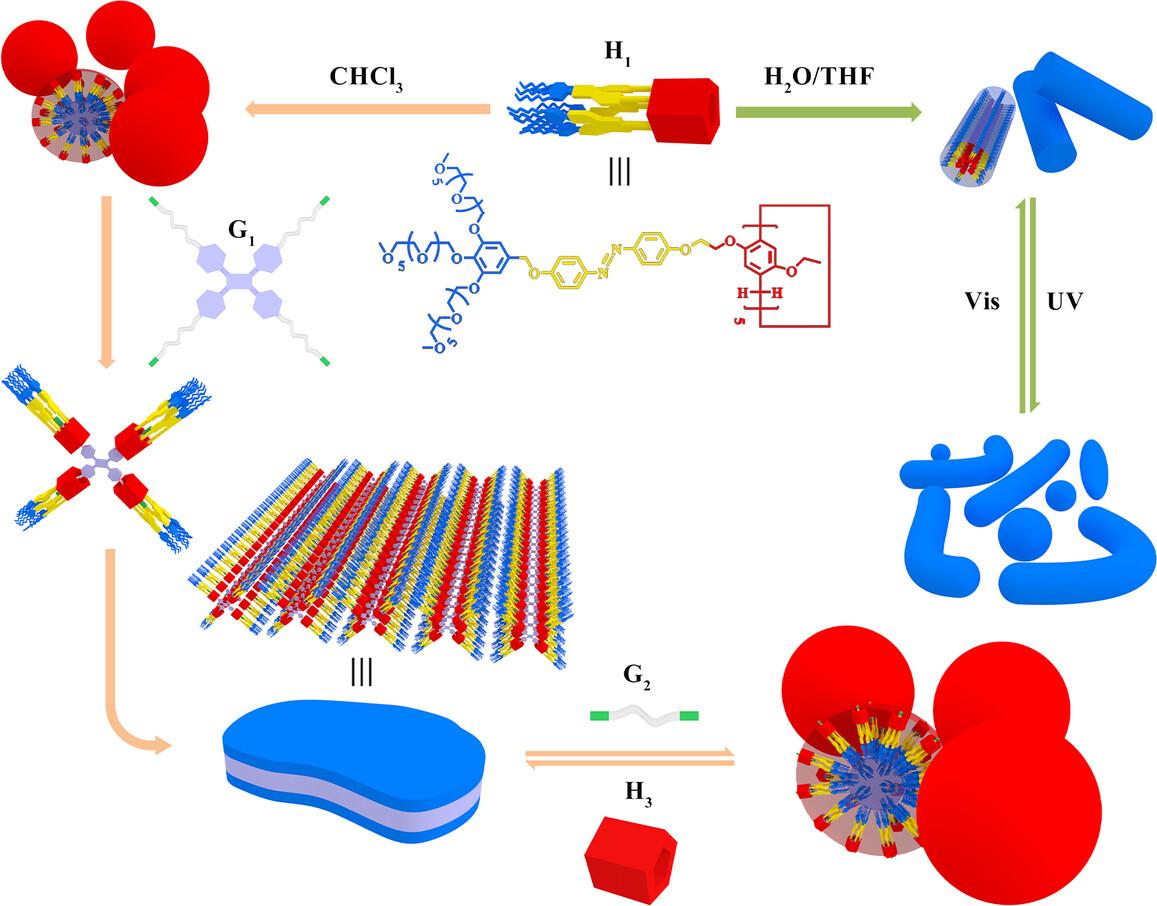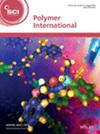Peng Liu, Yingying Deng, Jie Lu, Xiaoliang Gou, Qingqing Han, Yi-Rong Pei, Long Yi Jin
求助PDF
{"title":"Ordered nanoassemblies from self-assembly of amphiphilic molecule containing pillar[5]arene and azobenzene groups","authors":"Peng Liu, Yingying Deng, Jie Lu, Xiaoliang Gou, Qingqing Han, Yi-Rong Pei, Long Yi Jin","doi":"10.1002/pi.6600","DOIUrl":null,"url":null,"abstract":"<p>The derivatization of pillar[<i>n</i>]arenes is a prerequisite for endowing them with functions, as well as enriching the application of pillar[<i>n</i>]arene materials in advanced material science. Herein, we report the self-assembly of amphiphilic rim-differentiated pillar[5]arene (<b>H</b><sub><b>1</b></sub>). One side of the pillar[5]arene is composed of hydrophilic poly(ethylene oxide) chains, benzene and azobenzene groups connected with ether bonds, and the other side is composed of ethoxy groups. In CHCl<sub>3</sub> solvent, the amphiphile <b>H</b><sub><b>1</b></sub> self-assembled into spherical micelles, while in H<sub>2</sub>O/THF mixed solvent <b>H</b><sub><b>1</b></sub> self-assembled into nanorod-like assemblies. Interestingly, addition of a guest molecule composed of tetraphenylethene and hexanenitrile groups (<b>G</b><sub><b>1</b></sub>) to the CHCl<sub>3</sub> solution of <b>H</b><sub><b>1</b></sub> produces large sheet aggregates via the strong <i>π</i>–<i>π</i> stacking of rod segments. The reversible transformation between the nanosheet assemblies of host–guest complexes and nanoparticles is achieved by addition of the guest molecule 1,4-butylamine (<b>G</b><sub><b>2</b></sub>) and pillar[5]arene with ethoxy groups as competitive molecules. Notably, worm-like and nanorod micelles of <b>H</b><sub><b>1</b></sub> were constructed in H<sub>2</sub>O/THF solution triggered by light irradiation, which assemblies can be used as photosensitive erasable writing materials. © 2023 Society of Industrial Chemistry.</p>","PeriodicalId":20404,"journal":{"name":"Polymer International","volume":"73 5","pages":"359-367"},"PeriodicalIF":2.9000,"publicationDate":"2023-12-06","publicationTypes":"Journal Article","fieldsOfStudy":null,"isOpenAccess":false,"openAccessPdf":"","citationCount":"0","resultStr":null,"platform":"Semanticscholar","paperid":null,"PeriodicalName":"Polymer International","FirstCategoryId":"92","ListUrlMain":"https://onlinelibrary.wiley.com/doi/10.1002/pi.6600","RegionNum":4,"RegionCategory":"化学","ArticlePicture":[],"TitleCN":null,"AbstractTextCN":null,"PMCID":null,"EPubDate":"","PubModel":"","JCR":"Q2","JCRName":"POLYMER SCIENCE","Score":null,"Total":0}
引用次数: 0
引用
批量引用
Abstract
The derivatization of pillar[n ]arenes is a prerequisite for endowing them with functions, as well as enriching the application of pillar[n ]arene materials in advanced material science. Herein, we report the self-assembly of amphiphilic rim-differentiated pillar[5]arene (H 1 3 solvent, the amphiphile H 1 2 O/THF mixed solvent H 1 G 1 3 solution of H 1 π –π stacking of rod segments. The reversible transformation between the nanosheet assemblies of host–guest complexes and nanoparticles is achieved by addition of the guest molecule 1,4-butylamine (G 2 H 1 2 O/THF solution triggered by light irradiation, which assemblies can be used as photosensitive erasable writing materials. © 2023 Society of Industrial Chemistry.
含有柱[5]炔和偶氮苯基团的两亲分子自组装产生的有序纳米组合体
柱[n]炔的衍生化是赋予其功能的先决条件,同时也丰富了柱[n]炔材料在先进材料科学中的应用。在此,我们报告了两亲边缘分化柱[5]炔(H1)的自组装。柱[5]炔的一面由亲水性聚(环氧乙烷)链、以醚键连接的苯和偶氮苯基团组成,另一面为乙氧基基团。在 CHCl3 溶剂中,双亲化合物 H1 自组装成球形胶束,而在 H2O/THF 混合溶剂中,H1 则自组装成纳米棒状集合体。有趣的是,在 H1 的 CHCl3 溶液中加入由四苯基乙烯和己腈基团组成的客体分子(G1),通过杆段的强π-π堆叠作用产生大片状聚集体。通过加入客体分子 1,4-丁胺(G2)和带有乙氧基的支柱[5]炔作为竞争分子,实现了主-客体复合物纳米片集合体和纳米颗粒之间的可逆转变。值得注意的是,在 H2O/THF 溶液中,H1 的蚯蚓状胶束和纳米棒状胶束在光照射下被构建出来,这种胶束可用作光敏可擦书写材料。
本文章由计算机程序翻译,如有差异,请以英文原文为准。


 求助内容:
求助内容: 应助结果提醒方式:
应助结果提醒方式:


